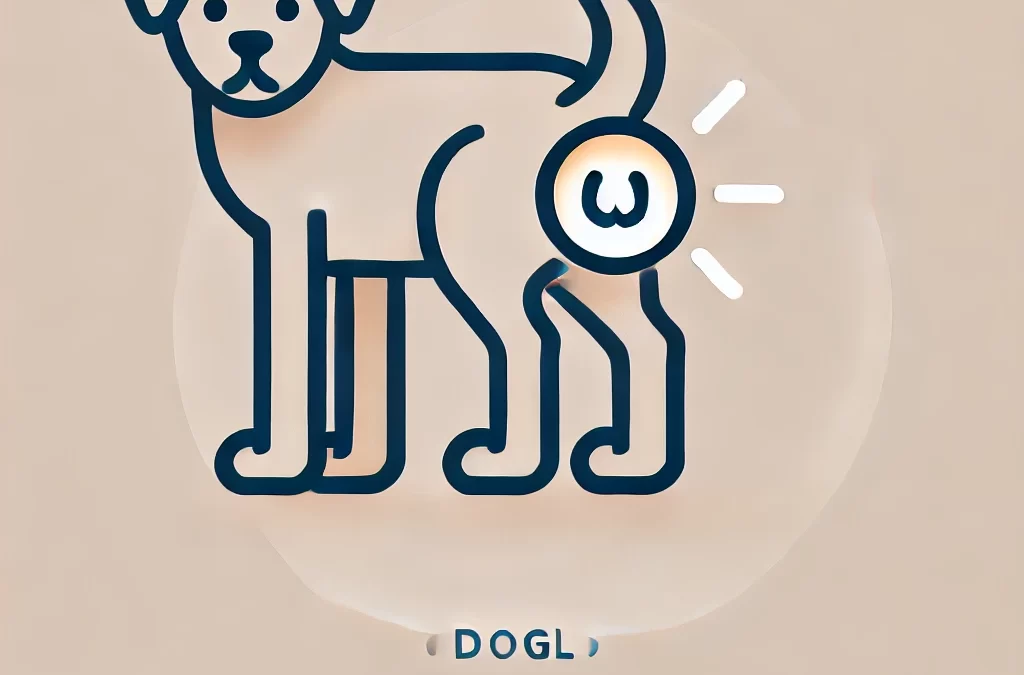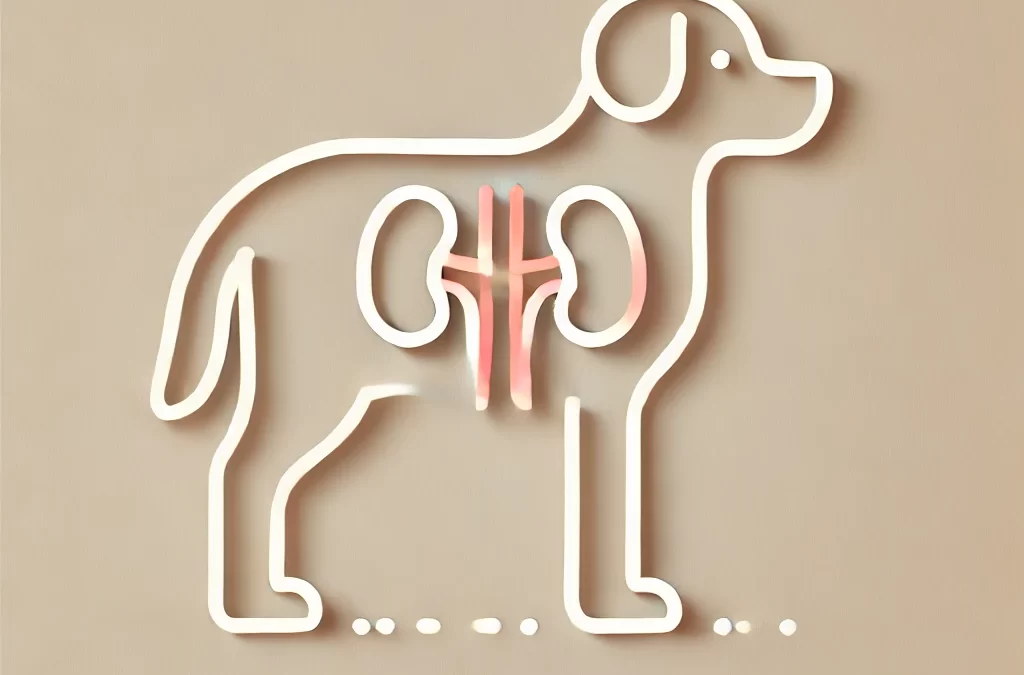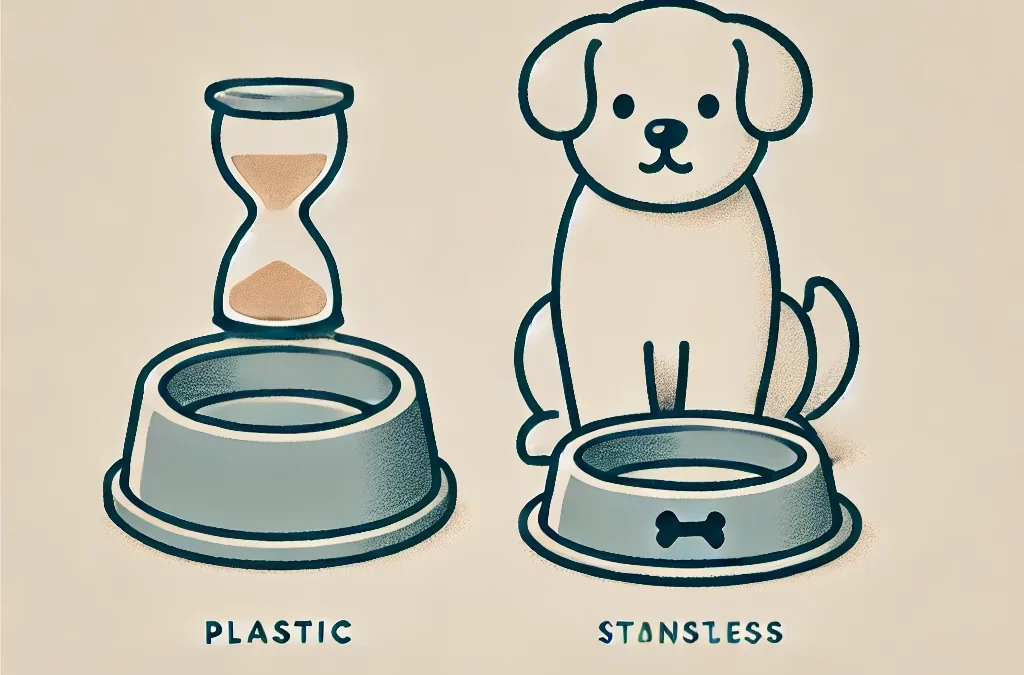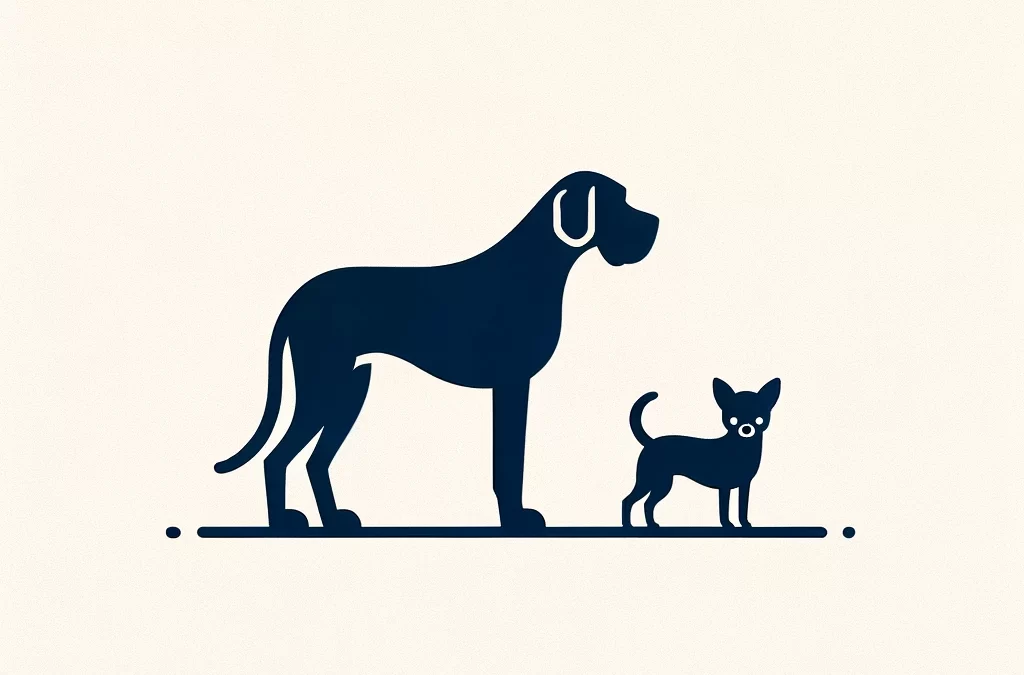
von TCMVET | 13. Dez. 2024 | Krebs und Tumore bei Hunden
Nasenkrebs bei Hunden, auch Nasenkarzinom genannt, ist eine relativ seltene, aber aggressive Erkrankung, die die Nasenhöhle oder die Nebenhöhlen befällt. Obwohl er weniger als 1% aller Krebserkrankungen bei Hunden ausmacht, liegt seine Schwere in seiner invasiven Natur und der Schwierigkeit, ihn frühzeitig zu erkennen. Dieser Artikel befasst sich mit den Symptomen, der Diagnose, den Behandlungsmöglichkeiten und der unterstützenden Pflege für Hunde, die gegen Nasenkrebs kämpfen.
Was ist Nasenkrebs bei Hunden?
Bei Nasenkrebs bei Hunden handelt es sich in erster Linie um Tumore, die sich in den Nasengängen oder Nebenhöhlen entwickeln. Die häufigste Art ist Adenokarzinom, aber auch andere Formen wie Plattenepithelkarzinom, Fibrosarkom oder Osteosarkom können auftreten. Diese Erkrankung betrifft typischerweise ältere Hunde, wobei größere Rassen einem etwas höheren Risiko ausgesetzt zu sein scheinen.
Anzeichen und Symptome
Frühe Anzeichen von Nasenkrebs können subtil sein und werden oft mit Atemwegsinfektionen oder Allergien verwechselt. Mit Fortschreiten der Krankheit werden die Symptome ausgeprägter. Achten Sie auf Folgendes:
- Anhaltender Nasenausfluss
Einseitiger (aus einem Nasenloch) Ausfluss, der blutig oder schleimig ist, ist ein typisches Symptom.
- Häufiges Niesen
Chronisches Niesen, das sich durch eine Behandlung nicht bessert, könnte auf eine durch einen Tumor verursachte Reizung der Nase hinweisen.
- Schwellung im Gesicht
Wenn der Tumor in umliegende Strukturen eindringt, kann es zu Schwellungen um die Nase, die Augen oder die Stirn kommen.
- Atembeschwerden
Schnarchen oder lautes Atmen können auf eine Blockade der Nasengänge hinweisen.
- Nasenbluten (Epistaxis)
Häufig wird von zeitweiligem oder anhaltendem Nasenbluten berichtet.
- Neurologische Symptome
Wenn sich der Tumor bis ins Gehirn ausbreitet, können Symptome wie Krampfanfälle, Orientierungslosigkeit oder Verhaltensänderungen auftreten.
- Appetitlosigkeit und Gewichtsverlust
Wie bei vielen Krebsarten können systemische Effekte zu einer verringerten Nahrungsaufnahme und einem Gewichtsverlust führen.
Diagnose
Die Diagnose von Nasenkrebs erfordert eine gründliche Untersuchung, einschließlich:
- Körperliche Untersuchung: Ein Tierarzt kann auf Asymmetrie im Gesicht oder abnormale Geräusche beim Atmen achten.
- Rhinoskopie: Eine kleine Kamera, die in die Nasengänge eingeführt wird, hilft, den Tumor zu visualisieren.
- Bildgebung: Röntgenaufnahmen, CT-Scans oder MRTs liefern detaillierte Bilder des Tumors und seiner Ausbreitung.
- Biopsie: Gewebeproben bestätigen die Art und Schwere der Krebserkrankung.
Behandlungsmöglichkeiten
Die Behandlung hängt von der Größe, Art und dem Stadium des Tumors sowie vom allgemeinen Gesundheitszustand Ihres Hundes ab. Zu den Optionen gehören:
- Strahlentherapie
Die wirksamste Behandlungsmethode bei Nasenkrebs ist die Bestrahlung. Ziel ist es, den Tumor zu verkleinern und die Symptome zu lindern. Zwar kann der Krebs dadurch nicht geheilt werden, aber die Lebensqualität kann dadurch deutlich verbessert werden.
- Operation
Aufgrund der komplexen Anatomie des Nasenbereichs ist die chirurgische Entfernung des Tumors schwierig, kann in bestimmten Fällen jedoch versucht werden.
- Chemotherapie
Eine Chemotherapie wird seltener eingesetzt, kann aber bei bestimmten Tumorarten oder als Ergänzung zu anderen Behandlungen empfohlen werden.
- Palliativpflege
Wenn eine kurative Behandlung nicht möglich ist, konzentriert sich die Palliativpflege auf die Linderung von Schmerzen und Beschwerden durch Medikamente, darunter entzündungshemmende Mittel, Schmerzmittel und Nasensprays.
Natürliche Therapien zur unterstützenden Pflege
Die Einbeziehung ganzheitlicher Ansätze zusätzlich zu konventionellen Behandlungen kann das Wohlbefinden Ihres Hundes steigern:
- Pflanzliche Nahrungsergänzungsmittel
Kräuter wie Kurkuma (Curcumin) und Tragant sollen entzündungshemmende und immunstärkende Eigenschaften haben.
- Ernährungsumstellungen
Eine hochwertige, kohlenhydratarme Ernährung unterstützt die allgemeine Gesundheit und reduziert Entzündungen.
- CBD Öl
Cannabidiol kann bei Hunden mit fortgeschrittenem Krebs zur Schmerzlinderung und Angstminderung beitragen.
Prognose und Lebensqualität
Die Prognose von Nasenkrebs bei Hunden hängt von Faktoren wie Tumorart und Stadium bei der Diagnose ab. Durch Strahlentherapie erfahren viele Hunde eine Linderung ihrer Symptome und eine längere Überlebenszeit, die oft zwischen 8 und 18 Monaten liegt. Ohne Behandlung schreitet die Krankheit schnell fort, oft innerhalb von Wochen bis wenigen Monaten.
So unterstützen Sie Ihren Hund
- Symptome überwachen: Behalten Sie Veränderungen bei Atmung, Essverhalten oder Energieniveau im Auge.
- Häufige Tierarztbesuche: Regelmäßige Kontrolluntersuchungen stellen sicher, dass der Zustand Ihres Hundes genau überwacht wird.
- Sorgen Sie für Komfort: Weiche Einstreu, eine ruhige Umgebung und einfacher Zugang zu Futter und Wasser machen einen großen Unterschied.
Abschließende Gedanken
Nasenkrebs bei Hunden ist eine erschreckende Diagnose, aber mit rechtzeitigem Eingreifen und einem umfassenden Pflegeplan können Sie Ihrem Hund die bestmögliche Lebensqualität geben. Sprechen Sie immer mit Ihrem Tierarzt, um Behandlungsmöglichkeiten zu besprechen, die auf die spezifischen Bedürfnisse Ihres Hundes zugeschnitten sind.

von TCMVET | 13. Dez. 2024 | Krebs und Tumore bei Hunden
Nierenkrebs bei Hunden ist zwar selten, aber eine ernste Erkrankung, die die Lebensqualität Ihres pelzigen Freundes erheblich beeinträchtigen kann. Das frühzeitige Erkennen der Anzeichen kann einen großen Unterschied bei den Behandlungsergebnissen ausmachen. In diesem Artikel untersuchen wir die verräterischen Anzeichen von Nierenkrebs, besprechen, warum er oft unbemerkt bleibt, und geben Einblicke in unterstützende Behandlungsmöglichkeiten.
Was ist Nierenkrebs bei Hunden?
Nierenkrebs bezeichnet ein abnormales Zellwachstum in einer oder beiden Nieren. Bei Hunden ist das Nierenzellkarzinom die häufigste Form von Nierenkrebs und betrifft vor allem ältere Hunde. Die genaue Ursache ist noch unklar, aber genetische Veranlagung und die Belastung mit Giftstoffen können eine Rolle spielen.
Die subtilen Anzeichen: Warum sich Nierenkrebs oft direkt vor den Augen anderer verbirgt
Die Symptome von Nierenkrebs können leicht mit weniger schwerwiegenden Problemen wie Harnwegsinfektionen oder allgemeiner Alterung verwechselt werden. Diese Überschneidung der Anzeichen verzögert oft die Diagnose. Darauf sollten Sie achten:
- Häufiges Wasserlassen oder Schwierigkeiten beim Wasserlassen
Eine Zunahme des Harndrangs oder sichtbare Beschwerden beim Wasserlassen können auf eine Nierenüberlastung oder einen durch einen Tumor verursachten Verschluss hinweisen.
- Blut im Urin (Hämaturie)
Hellroter oder dunkelbrauner Urin ist ein wichtiges Warnsignal dafür, dass mit den Nieren Ihres Hundes etwas nicht in Ordnung sein könnte.
- Appetitverlust
Ein plötzlicher Verlust des Interesses am Essen, verbunden mit Gewichtsverlust, kann ein Hinweis auf systemische Probleme im Zusammenhang mit der Nierenfunktion sein.
- Lethargie
Wenn Ihr Hund ungewöhnlich müde wirkt oder nicht bereit ist, alltägliche Aktivitäten auszuführen, könnte dies auf eine zugrunde liegende Erschöpfung hinweisen, die durch eine Nierenfunktionsstörung verursacht wird.
- Abdominal Swelling
Eine Schwellung im Bauchraum könnte durch einen großen Nierentumor verursacht werden, der auf andere Organe drückt.
- Erbrechen und Übelkeit
Mit fortschreitendem Nierenkrebs sammeln sich Giftstoffe im Blut an, die zu Magen-Darm-Beschwerden führen.
Wie sich Nierenkrebs von anderen Erkrankungen unterscheidet
Viele der oben genannten Symptome ähneln denen einer Nierenerkrankung, Blasenentzündung oder sogar Diabetes. Bei Nierenkrebs sind diese Anzeichen jedoch hartnäckiger und verschlimmern sich mit der Zeit ohne Behandlung.
Die Rolle der Diagnostik
Zur Erkennung von Nierenkrebs ist eine Kombination von Untersuchungen erforderlich:
- Ultraschall und Röntgen ermöglichen die Abbildung möglicher Tumore.
- Bluttests zeigen eine abnormale Nierenfunktion oder Anämie an.
- Durch eine Urinanalyse können mikroskopisch kleine Blut- oder Krebszellen identifiziert werden.
Tierärzte können auch eine Biopsie empfehlen, um die Art und Schwere der Krebserkrankung zu bestätigen.
Natürliche Therapien zur unterstützenden Pflege
Während die chirurgische Entfernung der betroffenen Niere oft die primäre Behandlung darstellt, können ganzheitliche Ansätze traditionelle Methoden ergänzen, um die Lebensqualität Ihres Hundes zu verbessern.
- Pflanzliche Heilmittel
Kräuter wie Chuanxiong (Szechuan-Liebstöckel) können die Durchblutung fördern und Entzündungen im Nierenbereich lindern.
- Ernährungsumstellungen
Eine phosphorarme und proteinreiche Ernährung unterstützt die Nierenfunktion und reduziert die Arbeitsbelastung der verbleibenden Niere.
- CBD Öl
Cannabidiol kann bei der Schmerzlinderung und Stressreduzierung bei Hunden während der Behandlung helfen.
Tipps zur Vorbeugung: Können Sie das Risiko verringern?
Obwohl es unmöglich ist, Nierenkrebs vollständig vorzubeugen, können Sie einige Schritte unternehmen, um die allgemeine Nierengesundheit zu fördern:
- Stellen Sie frisches, gefiltertes Wasser bereit.
- Vermeiden Sie den Kontakt mit bekannten Karzinogenen wie Pestiziden.
- Planen Sie regelmäßige tierärztliche Kontrolluntersuchungen ein, insbesondere bei älteren Hunden.
Wann sollte man einen Tierarzt aufsuchen?
Wenn Sie eines der oben genannten Symptome bemerken, wenden Sie sich sofort an Ihren Tierarzt. Ein frühzeitiges Eingreifen kann zu besseren Ergebnissen führen, sei es durch Operation, Chemotherapie oder Palliativpflege.
Abschließende Gedanken
Nierenkrebs bei Hunden ist eine schwierige Diagnose, aber wenn Sie sich proaktiv um die Gesundheit Ihres Hundes kümmern, kann das einen großen Unterschied machen. Indem Sie subtile Veränderungen erkennen und rechtzeitig medizinischen Rat einholen, können Sie sicherstellen, dass Ihr geliebtes Haustier die Pflege und den Komfort erhält, den es verdient.

von TCMVET | 12. Dez. 2024 | Krebs und Tumore bei Hunden
Analkrebs bei Hunden ist zwar relativ selten, aber eine ernste Erkrankung, die sofortige Aufmerksamkeit erfordert. Der am häufigsten diagnostizierte Typ ist Analbeutel-Adenokarzinom, ein bösartiger Tumor, der aus den Analdrüsen entsteht. Diese Krebsart ist für ihre aggressive Natur und ihr Potenzial bekannt, sich auf andere Körperteile auszubreiten. In diesem Artikel untersuchen wir die Symptome, Diagnose, Behandlungsmöglichkeiten und Aussichten für Hunde, die von Analkrebs betroffen sind.
Was ist Analkrebs bei Hunden?
Analkrebs bezeichnet die Entwicklung bösartiger Tumore in oder nahe den Analdrüsen. Diese Drüsen, die sich auf beiden Seiten des Anus befinden, spielen eine Rolle bei der Sekretion von Flüssigkeiten, die zur Markierung des Reviers dienen. Wenn sich in diesen Drüsen Krebs entwickelt, wächst er oft schnell und kann in nahegelegene Lymphknoten, Lungen oder andere Organe metastasieren.
Symptome von Analkrebs bei Hunden
Die Symptome von Analkrebs bei Hunden können je nach Größe und Lage des Tumors sowie je nachdem, ob er sich ausgebreitet hat, unterschiedlich sein. Häufige Anzeichen sind:
- Knoten oder Schwellungen: Eine auffällige Masse oder Schwellung in der Nähe des Anus.
- Schwierigkeiten beim Stuhlgang: Pressen, Schmerzen oder Veränderungen der Stuhlform aufgrund der Verstopfung des Rektums durch den Tumor.
- Blutung: Blut um den Anus oder im Stuhl.
- Rutschen oder Lecken: Hunde rutschen möglicherweise auf dem Boden herum oder lecken die Stelle übermäßig, weil sie sich unwohl fühlen.
- Symptome einer Hyperkalzämie: Erhöhter Durst, häufiges Wasserlassen, Lethargie oder Schwäche aufgrund erhöhter Kalziumwerte im Blut.
- Gewichtsverlust und Appetitverlust: Fortgeschrittene Fälle können zu systemischen Symptomen wie Gewichtsverlust und vermindertem Appetit führen.
Wie wird Analkrebs diagnostiziert?
Zur Diagnose von Analkrebs verwenden Tierärzte eine Kombination aus:
- Körperliche Untersuchung: Suchen Sie im Analbereich nach Knoten, Schwellungen oder Beschwerden.
- Feinnadelaspiration oder Biopsie: Entnahme einer Tumorgewebeprobe zur Bestätigung der Bösartigkeit.
- Bluttests: Identifizierung von Hyperkalzämie oder anderen Anomalien.
- Bildgebung: Röntgen-, Ultraschall- oder CT-Scans bestimmen das Ausmaß des Krebses und prüfen, ob Metastasen vorhanden sind.
Behandlungsmöglichkeiten für Analkrebs bei Hunden
Die Behandlungsmethode hängt vom Stadium und der Ausbreitung des Krebses ab. Zu den üblichen Optionen gehören:
- Operation: Die primäre Behandlung bei lokalisiertem Analkrebs ist die chirurgische Entfernung des Tumors und möglicherweise befallener Lymphknoten.
- Strahlentherapie: Wird oft in Kombination mit einer Operation verwendet, um verbleibende Krebszellen zu bekämpfen.
- Chemotherapie: Empfohlen für Fälle, in denen der Krebs Metastasen gebildet hat oder als Ergänzung zu anderen Behandlungen.
- Palliativpflege: In fortgeschrittenen Fällen können Schmerzbehandlung, Ernährungsumstellung und unterstützende Pflege die Lebensqualität verbessern.
Prognose für Hunde mit Analkrebs
Die Prognose für Hunde mit Analkrebs hängt von mehreren Faktoren ab, darunter der Größe des Tumors, ob er sich ausgebreitet hat und der Behandlung. Früherkennung und aggressive Behandlung verbessern die Überlebensraten, und viele Hunde haben nach der Behandlung längere Zeit eine gute Lebensqualität. Fortgeschrittene Fälle mit Metastasen haben jedoch eine weniger günstige Prognose.
Pflege eines Hundes mit Analkrebs
Als Tierhalter ist es wichtig, Ihrem Hund eine unterstützende und angenehme Umgebung zu bieten. Befolgen Sie diese Tipps:
- Regelmäßige Tierarztbesuche: Planen Sie regelmäßige Kontrolluntersuchungen ein, um den Zustand Ihres Hundes zu überwachen.
- Nutrition: Bieten Sie während der Behandlung eine ausgewogene, auf die Bedürfnisse Ihres Hundes abgestimmte Ernährung.
- Schmerztherapie: Arbeiten Sie mit Ihrem Tierarzt zusammen, um sicherzustellen, dass sich Ihr Hund wohlfühlt.
- Emotionale Unterstützung: Geben Sie Ihrem Hund Liebe und Zuspruch, damit er mit dem Stress der Behandlung besser zurechtkommt.
Abschluss
Obwohl Analkrebs bei Hunden aggressiv ist, können eine frühe Erkennung und ein umfassender Behandlungsplan den Ausgang erheblich verbessern. Achten Sie auf Symptome und suchen Sie umgehend einen Tierarzt auf, wenn Sie ungewöhnliche Anzeichen bemerken. Mit der richtigen Unterstützung und Pflege kann Ihr Hund auch in schwierigen Zeiten eine gute Lebensqualität bewahren.

von TCMVET | 12. Dez. 2024 | Krebs und Tumore bei Hunden
Nierenkrebs bei Hunden ist relativ selten, kann aber die Gesundheit eines Hundes erheblich beeinträchtigen, wenn er auftritt. Die Symptome treten oft schleichend auf, was eine frühzeitige Erkennung schwierig macht. Das Wissen um die möglichen Anzeichen kann Tierbesitzern helfen, rechtzeitig tierärztliche Hilfe in Anspruch zu nehmen.
Häufige Symptome von Nierenkrebs bei Hunden
- Erhöhter Durst und häufiger Harndrang (Polydipsie und Polyurie):
- Übermäßiges Trinken und Urinieren können auf eine tumorbedingte Nierenfunktionsstörung hinweisen.
- Loss of Appetite:
- Bei Hunden mit Nierenkrebs kommt es häufig zu Appetitlosigkeit, was zu Gewichtsverlust führt.
- Weight Loss:
- Auch bei normaler Nahrungsaufnahme kann es zu Gewichtsverlust kommen, da der Körper im Kampf gegen die Krankheit Energie aufwendet.
- Erbrechen und Übelkeit:
- Eine durch Krebs verursachte Nierenfunktionsstörung kann zur Ansammlung von Giftstoffen im Blut führen und Magen-Darm-Probleme verursachen.
- Bauchschmerzen oder Schwellungen:
- Tumore können sichtbare Schwellungen oder Beschwerden beim Berühren des Bauches verursachen.
- Blut im Urin (Hämaturie):
- Aufgrund einer Tumorblutung kann der Urin rosa oder rot erscheinen.
- Lethargy:
- Hunde mit Nierenkrebs weisen möglicherweise ein verringertes Energieniveau und eine Abneigung gegenüber normalen Aktivitäten auf.
- Difficulty Breathing:
- In fortgeschrittenen Fällen können Tumore auf umliegende Organe drücken und Atemprobleme verursachen.
- Blasse Gummis:
- Anämie, die oft mit Nierenkrebs in Verbindung gebracht wird, kann zu blassem Zahnfleisch führen.
- Mundgeruch (Urämischer Atem):
- Eine Ansammlung von Giftstoffen im Blut aufgrund einer eingeschränkten Nierenfunktion kann zu einem ammoniakartigen Geruch führen.
Wann sollte man einen Tierarzt aufsuchen?
Wenn Ihr Hund eine Kombination dieser Symptome zeigt, müssen Sie umgehend einen Tierarzt aufsuchen. Diese Anzeichen treten zwar nicht nur bei Nierenkrebs auf, weisen aber häufig auf ein schwerwiegendes zugrunde liegendes Gesundheitsproblem hin, das diagnostiziert und behandelt werden muss.
Diagnose von Nierenkrebs bei Hunden
Ein Tierarzt verwendet normalerweise die folgenden Methoden, um Nierenkrebs zu bestätigen:
- Körperliche Untersuchung: Um Schwellungen oder Beschwerden zu erkennen.
- Urinanalyse: Um den Urin auf Blut oder ungewöhnliche Substanzen zu prüfen.
- Bluttests: Um die Nierenfunktion zu beurteilen und etwaige Anomalien zu erkennen.
- Bildgebung: Mittels Ultraschall, Röntgen oder CT können Tumore identifiziert und ihr Ausmaß bestimmt werden.
- Biopsie: Um die Natur des Tumors zu bestätigen, kann eine Probe des Tumors entnommen werden.
Behandlung und Prognose
Die Behandlungsmöglichkeiten hängen von der Tumorart und dem Stadium ab, können aber Folgendes umfassen:
- Operation: Entfernung der betroffenen Niere (Nephrektomie), wenn der Krebs lokal begrenzt ist.
- Chemotherapie: Bei bestimmten Krebsarten kann eine Chemotherapie das Fortschreiten der Krankheit verlangsamen.
- Unterstützende Pflege: Schmerzbehandlung, Flüssigkeitszufuhr und Ernährungsunterstützung zur Aufrechterhaltung der Lebensqualität.
Eine frühzeitige Erkennung verbessert die Behandlungsergebnisse, daher sind regelmäßige tierärztliche Untersuchungen besonders bei älteren Hunden unerlässlich.
Wenn Sie diese Symptome erkennen und schnell handeln, haben Sie die besten Chancen auf eine wirksame Behandlung und eine gute Lebensqualität für Ihren Hund.

von TCMVET | 11. Dez. 2024 | Krebs und Tumore bei Hunden
Plastik ist in unserem täglichen Leben allgegenwärtig, von Lebensmittelbehältern über Haushaltsgegenstände bis hin zu Produkten für unsere pelzigen Freunde. Aber könnte dieses scheinbar harmlose Material eine Gefahr für die Gesundheit unserer Hunde darstellen? Neuere Studien deuten darauf hin, dass eine längere Exposition gegenüber bestimmten Plastikarten das Krebsrisiko bei Hunden erhöhen kann. Lassen Sie uns die wissenschaftlichen Erkenntnisse untersuchen und herausfinden, was Tierbesitzer tun können, um ihre Haustiere zu schützen.
Die versteckten Gefahren von Kunststoffen
Viele Kunststoffarten enthalten schädliche Chemikalien wie Bisphenol A (BPA), Phthalate und Polyvinylchlorid (PVC). Diese Chemikalien werden häufig verwendet, um Kunststoff haltbar, flexibel oder transparent zu machen. Sie können jedoch in Lebensmittel, Wasser oder sogar in die Umwelt gelangen, insbesondere wenn Kunststoffe erhitzt, zerkratzt oder zersetzt werden.
Bei Tieren können diese Chemikalien als endokrine Disruptoren wirken und die Hormonfunktion beeinträchtigen. Längerer Kontakt kann zu Zellveränderungen, oxidativem Stress und sogar Tumorbildung führen, was die Wahrscheinlichkeit von Krebs erhöht. Bei Hunden, deren tägliche Gewohnheiten oft Kauen, Lecken und engen Kontakt mit verschiedenen Materialien beinhalten, sind die Risiken noch größer.
Alltägliche Plastikbelastungsquellen für Hunde
- Futter- und Wassernäpfe: Viele Hundebesitzer verwenden unwissentlich Plastiknäpfe, die insbesondere bei Kratzern oder Sonneneinstrahlung schädliche Stoffe abgeben können.
- Kauspielzeug: Minderwertiges Plastikspielzeug enthält oft nicht zugelassene Materialien, die bei Verschlucken oder ausgiebigem Kauen ein Risiko darstellen können.
- Verpackung: Hundeleckerlis, Trockenfutter und andere Produkte werden oft in Plastikverpackungen aufbewahrt, aus denen Chemikalien in das Futter gelangen können.
- Haushaltsgegenstände: Hunde kommen im Haus häufig mit Plastikgegenständen in Kontakt, von Behältern bis hin zu Möbeln.
Krebsrisiken im Zusammenhang mit Plastik
Während direkte Zusammenhänge zwischen Plastikbelastung und Krebs bei Hunden noch erforscht werden, deuten Erkenntnisse aus der Human- und Tierforschung auf einen besorgniserregenden Zusammenhang hin. Bei Hunden können Krebserkrankungen wie Brusttumore, Hodenkrebs und Lymphome durch Umweltgifte, darunter auch solche in Plastik, beeinflusst werden. Kleinere Rassen oder Hunde mit Vorerkrankungen können besonders anfällig sein.
Schritte zur Reduzierung der Plastikbelastung
Tierbesitzer können proaktiv Maßnahmen ergreifen, um die Belastung ihres Hundes durch schädliche Kunststoffe zu minimieren:
- Wechseln Sie zu sichereren Schüsseln: Verwenden Sie für Futter und Wasser Edelstahl-, Keramik- oder Glasnäpfe anstelle von Plastiknäpfen.
- Wählen Sie hochwertiges Spielzeug: Entscheiden Sie sich für ungiftiges, BPA-freies Spielzeug oder solches aus natürlichen Materialien wie Gummi.
- Überdenken Sie die Speicherung: Bewahren Sie Hundefutter und Leckerlis in luftdichten Behältern aus Glas oder Edelstahl auf, anstatt sie in der Originalverpackung aus Kunststoff zu belassen.
- Untersuchen Sie Ihr Zuhause: Beschränken Sie den Zugang Ihres Hundes zu minderwertigen Plastikgegenständen, die zerkaut oder verschluckt werden könnten.
- Vermeiden Sie das Erhitzen von Kunststoffen: Erhitzen Sie Futter oder Leckereien in Plastikbehältern niemals in der Mikrowelle, da die Hitze die Auswaschung der Chemikalien fördert.
Für sicherere Standards eintreten
Über persönliche Entscheidungen hinaus können sich Tierbesitzer für bessere Sicherheitsstandards in der Heimtierproduktbranche einsetzen. Die Unterstützung von Marken, die ungiftige Materialien und nachhaltige Praktiken bevorzugen, sendet ein starkes Signal. Darüber hinaus können Sie Ihren Hund vor versteckten Risiken schützen, indem Sie sich über Produktrückrufe oder neue Forschungsergebnisse informieren.
Das große Ganze
Obwohl Plastik ein allgegenwärtiger Bestandteil des modernen Lebens ist, können seine möglichen Auswirkungen auf die Gesundheit nicht ignoriert werden. Für unsere Hunde ist die Reduzierung der Belastung durch schädliches Plastik eine einfache, aber effektive Möglichkeit, ihre langfristige Gesundheit und ihr Wohlbefinden zu unterstützen. Indem wir bewusste Entscheidungen treffen und das Bewusstsein dafür schärfen, können wir dafür sorgen, dass unsere Haustiere ein glücklicheres und gesünderes Leben führen.

von TCMVET | 11. Dez. 2024 | Krebs und Tumore bei Hunden
Bei Hunden spielt die Größe eine Rolle – aber nicht nur in der Weise, wie wir normalerweise denken. Während große Hunde für ihre Stärke und kleine Hunde für ihren Charme bewundert werden, haben neuere Studien einen überraschenden Zusammenhang zwischen der Größe eines Hundes und seinem Krebsrisiko aufgedeckt. Lassen Sie uns diesen faszinierenden Zusammenhang näher betrachten und herausfinden, was er für Tierbesitzer bedeutet.
Die Wissenschaft hinter Größe und Krebsrisiko
Studien haben gezeigt, dass größere Rassen wie Deutsche Doggen, Berner Sennenhunde und Rottweiler anfälliger für bestimmte Krebsarten sind als ihre kleineren Artgenossen. Aber warum? Die Antwort liegt in der Biologie. Große Hunde wachsen schneller und haben mehr Zellen in ihrem Körper. Diese erhöhte Zellaktivität erhöht die Wahrscheinlichkeit von Mutationen, die zu Krebs führen können.
Kleine Rassen wie Chihuahuas und Dackel haben dagegen tendenziell ein geringeres Krebsrisiko, sind aber nicht vollständig immun. Bestimmte Krebsarten wie Mastzelltumoren können auch kleinere Hunde befallen, was häufig eher auf genetische Veranlagung als auf die Größe zurückzuführen ist.
Schnelles Wachstum: Ein zweischneidiges Schwert
Große Hunderassen erleben im Welpenalter schnelle Wachstumsschübe, die ihren Körper enorm belasten. Dieses schnelle Wachstum kann zu einer weniger stabilen Zellteilung führen, was mit der Zeit das Risiko abnormalen Zellverhaltens erhöht. Darüber hinaus können die Stoffwechselanforderungen größerer Hunde die Alterung beschleunigen, wodurch sie im Alter anfälliger für Krankheiten, einschließlich Krebs, werden.
Langlebigkeit und Krebsrisiko
Kleine Hunde leben oft deutlich länger als große Rassen. Diese Langlebigkeit gibt kleinen Hunden zwar mehr Zeit, altersbedingte Krankheiten zu entwickeln, bedeutet aber auch, dass ihr langsameres Wachstum und ihre langsamere Zellerneuerung sie vor früh auftretenden Krebserkrankungen schützen können, die bei größeren Rassen häufig auftreten. Im Gegensatz dazu korreliert die kürzere Lebensdauer größerer Hunde oft mit einer höheren Prävalenz aggressiver Krebserkrankungen in jüngerem Alter.
Was Tierbesitzer tun können
Tierbesitzer können unabhängig von der Größe ihres Hundes proaktiv Maßnahmen ergreifen, um das Krebsrisiko zu minimieren. Regelmäßige tierärztliche Untersuchungen, ausgewogene Ernährung und angemessene Trainingsroutinen sind unerlässlich. Bei großen Rassen sollte besonders auf ein gesundes Gewicht geachtet werden, da Fettleibigkeit das Krebsrisiko weiter erhöhen kann. Kleine Hunde sind zwar weniger anfällig für größenbedingte Krebserkrankungen, aber dennoch sind genetische Untersuchungen zur frühzeitigen Erkennung erblicher Risiken von Vorteil.
Die neue Definition von „Auf die Größe kommt es an“
Der Zusammenhang zwischen Größe und Krebsrisiko zwingt uns, unsere Herangehensweise an die Hundepflege zu überdenken. Wir können die Größe eines Hundes zwar nicht ändern, aber das Verständnis, wie sie seine Gesundheit beeinflusst, kann uns helfen, fundierte Entscheidungen zu treffen. Von der Auswahl der Rasse bis hin zur Anpassung der Pflegeroutinen – dieses Wissen befähigt Tierbesitzer, ihren pelzigen Freunden die besten Chancen auf ein langes, gesundes Leben zu geben.
Letztendlich verdient jeder Hund, egal ob groß oder klein, Liebe, Aufmerksamkeit und proaktive Gesundheitsfürsorge. Indem wir uns informieren, können wir alle dazu beitragen, das Krebsrisiko zu senken und sicherzustellen, dass es unseren vierbeinigen Begleitern gut geht.






